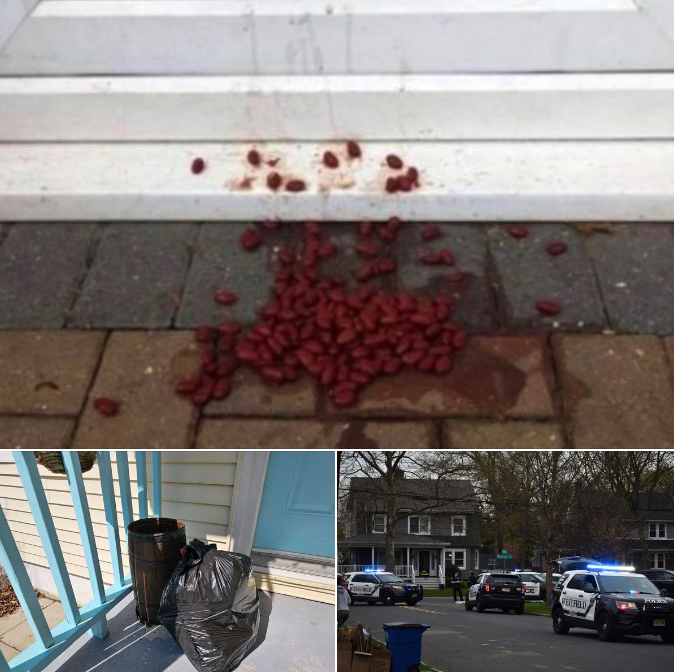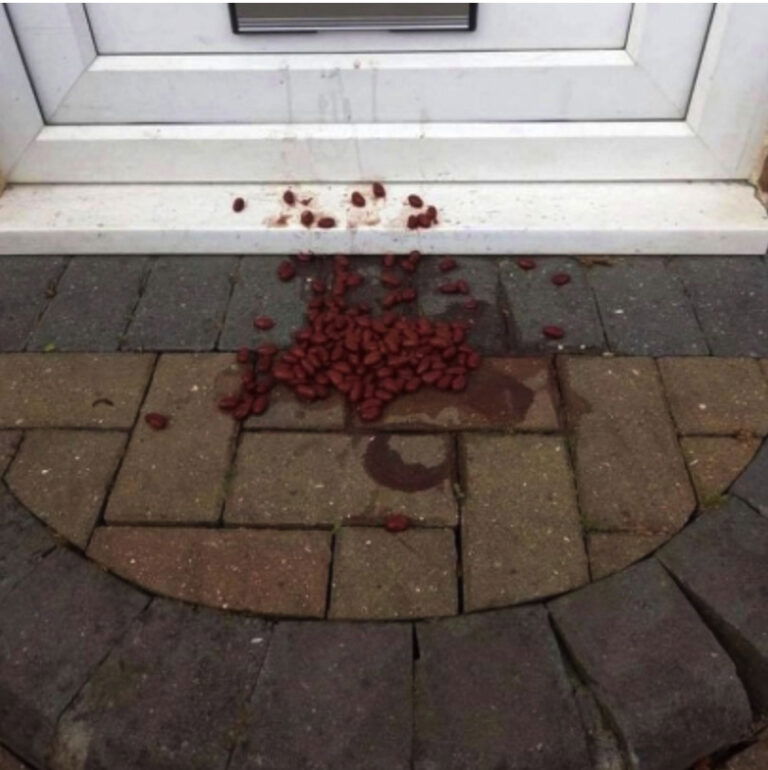
Many of us (especially those with young children or animals) are accustomed to seeing our homes or yards in various stages of disarray.
I don’t know how many times I’ve returned home, noticed something clearly wrong, and pondered, “How on Earth did that get there?”
My children have often been involved. When they are innocent, it is frequently the dog or cats who bear the blame. My point is that it is extremely uncommon that anything out of the norm causes me to halt for thinking or, worse, makes me feel worried in any manner, shape or form.
However, after hearing the concern given to a woman from Manchester, UK, after discovering food scraps in her front yard, I may be stopping to take a closer look at any oddities that arise on my property.
According to reports, the woman in question, Maria Celino-Straker, went home one day to find a can of red beans placed at her door.

Naturally, Maria assumed she had fallen victim to some neighborhood kids who had nothing better to do than play a prank. If not that, possibly a fox dragged the beans from a bin and was scared off when they crossed her yard.
However, a relative, who also works as a police officer, is reported to have drastically changed her perspective after supposedly warning her about what the seemingly innocent can of beans might represent.
Now, I had no idea, but apparently laying food scraps or other stuff on someone’s doorstep is a tactic used by burglars to determine whether or not a homeowner is genuinely home, not on vacation, or away for an extended period of time.
After dumping their chosen trash or debris in someone’s front yard, the would-be thief waits to see if it is picked up or removed. If it is, it indicates that the individual is at home, and the burglar should look for another property instead. If the trash – in Maria’s instance, a can of beans – is left there, it usually implies that the homeowner is away, leaving their home vulnerable.

Maria Celino-Straker made the responsible decision to share what she had learned on Facebook, hoping that others who were unaware of this simple approach would be better educated.
I’m not sure about you, but I’m pleased she did!















